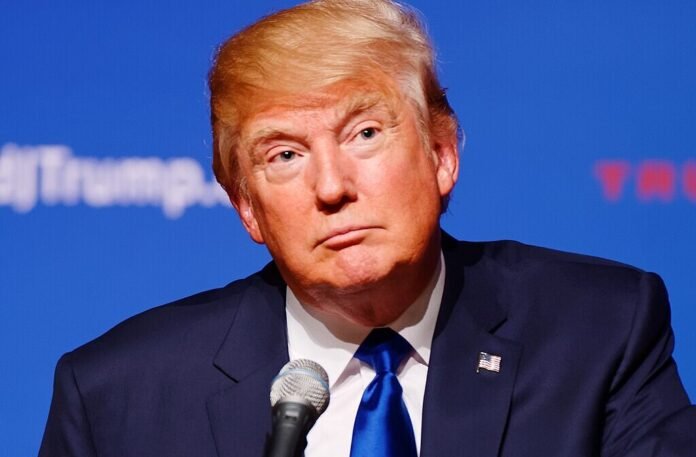A federal judge declines to lift Trump’s AP ban, setting up a high-stakes legal battle over press freedom
A federal judge on Monday upheld Donald Trump’s decision to bar the Associated Press (AP) from select press events, dealing an early blow to the news outlet’s legal battle against the White House. The ruling keeps the ban in place—at least for now—while the court gathers more details on the case.
Judge Trevor McFadden declined the AP’s emergency request to lift the restriction, stating that while legal precedent doesn’t favor Trump’s move, he saw no immediate justification to intervene. The ruling provides the White House a temporary win as it fights to keep the AP locked out.
The dispute erupted after AP repeatedly referred to the “Gulf of Mexico” instead of the Trump-preferred “Gulf of America” in its reporting. The White House responded by banning AP journalists from Oval Office briefings and Air Force One press pools, sparking outrage across the media industry.
Embed from Getty ImagesThe AP filed a lawsuit last week, accusing the Trump administration of violating the First Amendment by restricting its access in retaliation for its editorial choices. White House officials, including Deputy Chief of Staff Taylor Budowich, Press Secretary Karoline Leavitt, and Chief of Staff Susie Wiles, were named in the legal complaint.
However, the White House insists that access to the president is a privilege, not a right. In a court filing, officials argued that just because AP has historically enjoyed special access, it doesn’t mean it’s legally entitled to it forever.
The decision to block AP has broader implications. The White House appears to be targeting the AP due to its influence over mainstream media, particularly through its widely followed stylebook, which shapes how other outlets report on political issues.
Trump and his allies argue that AP has a left-leaning bias, pointing to language choices they believe downplay his administration’s priorities. Meanwhile, AP defends its editorial independence, stating that its style guide evolves to ensure accuracy and neutrality.
Adding to the controversy, interim U.S. Attorney for D.C. Ed Martin referred to his office as “President Trump’s lawyers” in a social media post. While his office later attempted to downplay the statement, critics see it as another sign that Trump is stacking the government with loyalists willing to protect his interests.
The White House Correspondents’ Association (WHCA), representing nearly 800 journalists, has filed an amicus brief supporting AP. The group warns that Trump’s actions could chill press freedom, forcing news outlets to self-censor to maintain access.
“This is bigger than just the AP,” the WHCA stated. “A government that punishes journalists for independent reporting is a direct threat to democracy.”
Despite Monday’s ruling, the legal battle is far from over. The next hearing is scheduled for March 20, where AP will continue to argue that Trump’s actions amount to political retaliation against the free press.
For now, Trump has won this round—but the fight is just beginning.
